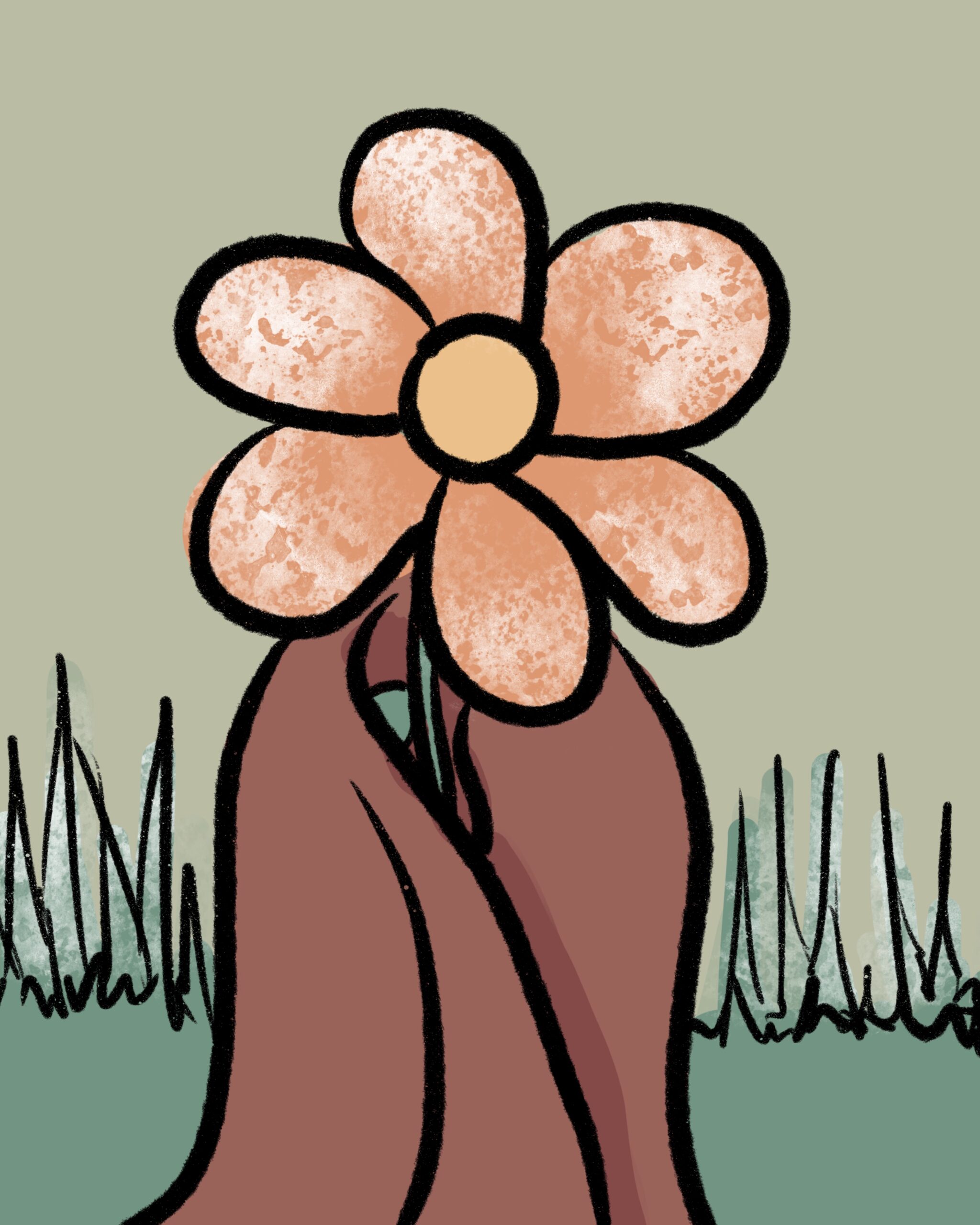Mid-fall: the frost is a small sign of hope
November 12, 2021
 This
piece represents the opinion of the author
.
This
piece represents the opinion of the author
.
 Sophie Lipset
Sophie LipsetThe frost is here, at last. When I step out to go to class, I’m greeted with a blanket of ice on the grass, the trees and my bike seat. Thankfully, it hasn’t come too late. Compared to some frost maps of Maine from the 1970s, it appears that the first freeze was late by about two weeks this year. I revise my earlier sentence: I’m thankful the frost has come at all.
Dante Alighieri composed an epic simile about frost to open Canto 24 of his “Inferno.” In it, he imagines a farmer going out and complaining about how the frost has prevented his herd from grazing and only when the sun thaws the field does the farmer rejoice. The opposite is true for me 700 years later: the frost brings joy. It’s a small comfort to see the seasons coming with some regularity.
This winter, we will likely get days of extreme cold, so far below freezing that you may wonder aloud if global warming might not be a bad thing. Though I never say anything, I almost cry when someone makes that joke in front of me. A single conversation with someone who studies the earth—a savvy farmer or scientist, it doesn’t matter which—will reveal that the increasing variability that we’re seeing, where frosts are late and cold snaps are followed by balmy days, is a sign of dramatic change on our planet.
The 26th Conference of the Parties (COP26) is happening in Glasgow right now. In essence, world leaders are there to negotiate climate policy. Many who watch climate politics are desperately hoping that this summit will result in a productive agreement to significantly curb global carbon emissions. The negotiations bring up countless ethical questions that have no definitive answer: which countries should have to reduce their emissions first? And how? And by how much? It is easy for me to block out the proceedings because it can be frustrating to watch promises that seem to go nowhere. Additionally, we can comment with frustration about how world leaders are entirely failing by failing to take action. In imagining a just, livable future, it’s hard to see any justice coming from the global negotiation room anymore.
I’m holding onto hope by clutching my figurative safety blankets. In the garden, we’re putting blankets on the beds to keep them cozy and protected from the winter weather. Volunteers have been spreading carbon-rich compost across last year’s soil, draping the ground in straw and netting that will help the earth rest until the spring season. This process helps the beds ward off the freezing temperatures at night in the same way that we’re closing our windows in advance of the cold ahead.
Warm blankets reassure me that there are still comforts and justices running throughout this world. Small wins, you could say. For instance, it’s a blue-sky blessing that Jes Staley’s presence at Bowdoin has come to an end. Staley is starting to face consequences for his actions thanks to bottom-up student protest and top-down legal oversight. I’ll leave it open as to what mid-level bystanders did to hasten his departure. In this case, I’m reminding myself that we can always resist what we believe is wrong and that we have the right to assert what is right. But, we cannot lead with a vendetta; we cannot meet the injustice with excessive retribution. There is no place for hate. My safety blanket comes from seeing the effects of calm and thoughtful anger.
Small wins are spurring me on. The garden, and most gardens that I’ve known, are small wins in a time and place that can breed personal frustration with the way things go. I am hopeful, perhaps too hopeful, for good outcomes from COP26. Yes, I believe that global leaders are too wedded to economic growth to achieve drawdown, and yes, there is a lack of leadership coming from powerful nations despite Sir David Attenborough’s rousing speech. However, maybe in that collection of voices there will come some resolution for a well-knit world. Maybe with calm and thoughtful resistance, we can ensure that the frosts will return.

Comments
Before submitting a comment, please review our comment policy. Some key points from the policy: